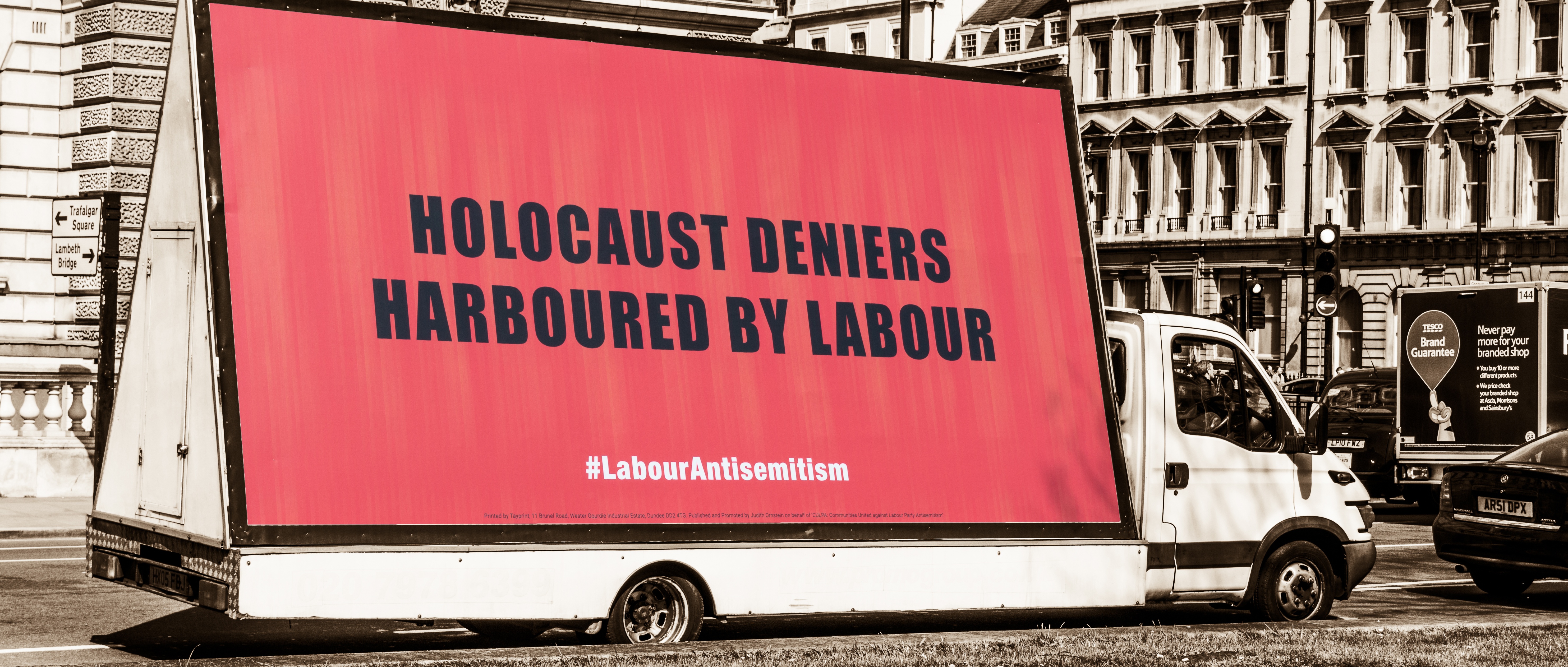Antisemitism is breaking activists’ brains
“Isn’t it infuriating that yesterday all of Labour was tweeting furiously that the New Statesman refused to endorse Corbyn, and today they’re tweeting about how sad the Jewish Labour Movement dossier is?” — Anon.
Say what you will about the Conservative party but it does at least have the following advantage for those attempting to follow its internal culture wars: the bastards may be bastards, but at least they’re consistently bastards.
If only the same could be said of the Labour party’s more vocal supporters. Over the past week, we’ve had them claiming that accusations of antisemitism are simply a Tory smear, saying ‘the problem is real – but the Conservatives are the real racists’, arguing that the Jewish Labour Movement dossier ‘shows there is a problem that must be dealt with, but not that voters should choose Boris and Austerity’, and then, once enough time was judged to have passed, returning to the first point in the cycle.
For a single movement to contain this many viewpoints on the issue of antisemitism would show an alarming lack of coherence. For the same person to veer between them shows that something in their internal model of reality is rendering them fundamentally incapable of handling the world as it really is.
From my vantage point it looks as though at least part of the problem is that the issue of antisemitism, combined with a snap election, falls neatly onto the major fault-line in online left dialogue.
Those fortunate enough to have experienced the persuasive rhetoric of left wing activists will be aware that there is a certain tendency is to look at issues in terms of oppression, hierarchy, and privilege, and then to formulate arguments around policies and parties in these terms: “X is a transphobe. Y is islamophobic. Z is anti-black. Therefore you must vote for L – unless you, too, are all of these things.”
At the same time, the fundamental rationale for most of the left wing parties is a broadly utilitarian calculus which by its nature places a heavy emphasis on economic issues and redistribution. While the rise in emphasis on social issues has driven away some economically-left-but-socially-conservative voters, there is no inherent contradiction between the values of economic collectivism and social liberalism. And while some voters might be lost, they were racists, or transphobes, or some other flavour of bigot whose vote you didn’t want anyway.
The problem is that their own party is now a glaring exception to this stance, and there is nothing in their debating algorithm that tells them how to resolve it. The consistent line has been that the oppression/hierarchy/privilege axis is the single most important thing in politics, that it holds the power to disqualify utterly and without hope of redemption, and that it can never – never – be ignored. This is built into the core of their worldview. Their colours are pinned firmly to it.
But with an election looming, activists are now having to weigh their values against each other in a way they did not before. Do they stick with their rhetoric about the disqualifying nature of racism, or do they think that redistribution is more important? When forced to choose between an economically collectivist Labour party riddled with antisemitism, and the Conservatives, it seems that the economic motivation wins out.
For most voters, that would be the end of the matter. There would be a recognition that it’s a grubby sort of compromise, but that in the choice between two evils they have chosen the one that they believe to be lesser. For the activists who pride themselves on their social justice credentials, that option is unavailable.
The way they appear to be rationalising their decision while maintaining their self-conception as uncompromising anti-racists is to say that they aren’t making a moral compromise; the stories must be false, because Labour is the good party. After all, they are the good people – and they’re backing Labour! Q.E.D. The activist must simultaneously hold on to the beliefs that we must listen and believe to minorities who report bigotry, that the Labour party is not antisemitic, that bigotry is disqualifying, and that we have a duty to elect a Labour government that will do better by the poor and disadvantaged.
What this means in practice is that we end up with a peculiar whiplash between positions. The activist will declare that the problem of antisemitism is obviously dreadful, but tear into people for saying that they will vote against Labour on account of the same. They will accept the individual cases of antisemitism brought to their attention, but deny that there is any aggregate or institutional problem no matter how high the evidence piles. They will claim that Boris Johnson is a bigot who cannot be Prime Minister, but refuse to apply the same standards to Jeremy Corbyn. The conflict between the activists’ principles and their debating algorithm produces a total failure of rhetoric.
Header image courtesy of mrgarethm, used under a Creative Commons license.
